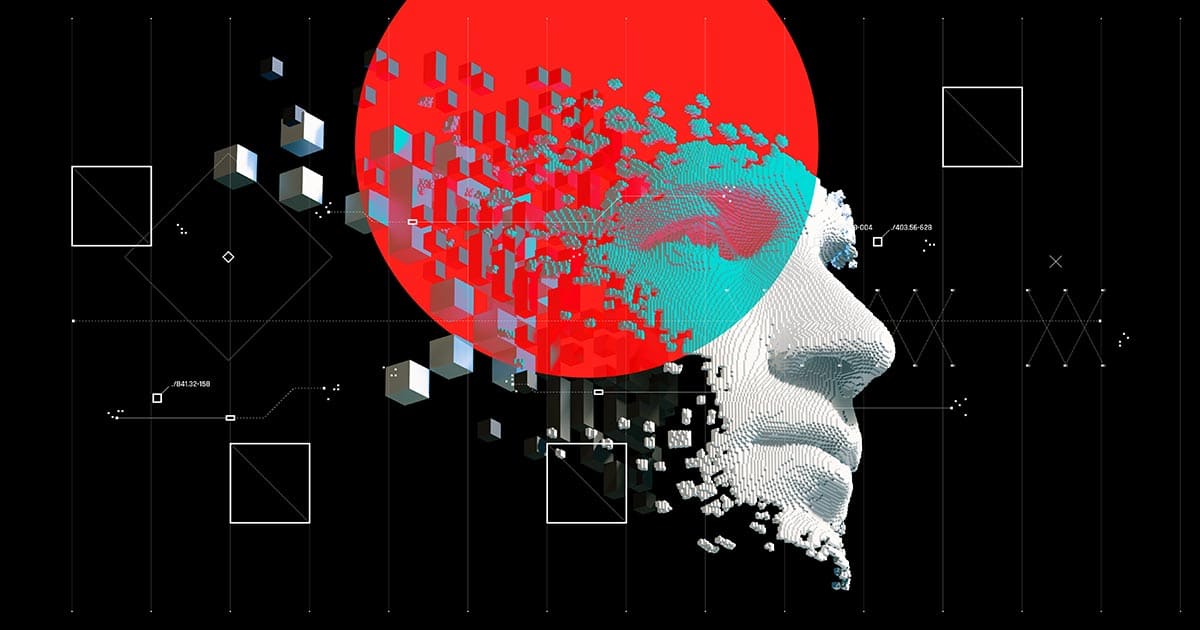Elevate your career as a tech manager and leader with a postgraduate AI Management course. Gain expertise in AI strategy and implementation. No advanced coding required.

Welcome to the world of AI Management, where tech-savvy professionals make strategic decisions in the rapidly evolving field of artificial intelligence. Postgraduate courses are available online to give you a head start.
Discover how AI Management degrees and courses can elevate your career, providing you with expertise in implementing AI solutions. Whether you aspire to be a successful AI project manager, data analyst, tech manager, or AI consultant, Australian universities offer valuable training online.
What Is Management in AI?
Management in artificial intelligence is about guiding the deployment of AI to benefit a company. It involves overseeing the tasks required to implement, use, and maintain artificial intelligence technologies in an organisation.
The role of a manager in AI is to identify potential applications of AI, evaluate risks and benefits, align AI initiatives with business objectives, ensure data quality and privacy, monitor performance, and promote collaboration between technical and non-technical teams.
AI is important in business management as it enables data-driven decision-making, automation of repetitive tasks, improved efficiency, and enhanced customer experiences. AI tools can also produces valuable insights for strategic planning and competitive advantage.
Artificial Intelligence Management Courses
An AI management course offers an ideal opportunity to learn AI deployment without advanced coding. Gain crucial technical knowledge in data handling, machine learning, and AI, while also discovering how to identify and leverage AI opportunities in a business context.
Graduate Certificate in AI Management

The shortest university-accredited AI management course in Australia is a Graduate Certificate in Artificial Intelligence Management, taking 8 months of part-time study. It is suitable for professionals in technical and non-technical teams with at least a basic grasp of contemporary technologies. Graduates can continue their studies towards a master's degree.
UTS Online - Graduate Certificate in Artificial Intelligence Management
The UTS Online Graduate Certificate in Artificial Intelligence Management is for tech-driven individuals who want to develop their knowledge in artificial intelligence, and data and process management. Students build on existing technical knowledge by learning how to develop and lead AI solutions to solve complex problems in organisations. You’ll learn the foundations of AI management, including the application of multi-dimensional visualisation techniques, machine learning methods and state-of-the-art algorithms, while applying knowledge of data ethics and regulation to achieve artificial intelligence solutions. The course is delivered part-time and 100% online by UTS, ranked 10th globally for artificial intelligence research (AI Research Index Issue Report, 2020).
Master's Degree in Managing Technology
You can learn to manage technology projects successfully, including those focused on using AI, with a Master of Technology Management degree. Flexible programs allow you to choose electives to meet your learning goals. Artificial Intelligence may be a designated specialisation, or you can customise your program to focus on this field.
What You'll Study (Course Structure)
In an AI course, you can expect to study machine learning (ML) and, in particular, the algorithms that can be used to generate artificial intelligence. Important related subjects are data analytics, data visualisation, and practical ML applications.
Artificial intelligence, machine learning, data visualisation, and databases are all elements of the data analytics field. But central to data analysis are the algorithms themselves. In this subject, you learn how basic, more powerful and subtle algorithms work. We take a research-inspired approach so that you learn to apply state-of-the-art algorithms to your professional practice. Applications such as social network analysis and text mining are considered.
In this subject, you work on practical problems using data analytics, data mining and knowledge discovery methods. In particular, artificial intelligence students will learn how to conduct data mining research and development projects. Issues of ethics, privacy and cultural limitations of AI solutions are explored with the help of case studies.
In this subject, you'll learn to use visual analysis software and the practice of cutting-edge data visualisation. Students explore the procedure (loop) and visual data analytics methods. You'll also consider human involvement (or input) into the loop of analytical reasoning that is facilitated by interactive visual interfaces.
In this course, students explore regulation and ethics of data practices in the digital environment. You'll build a deeper awareness of the moral and ethical foundations of privacy, security and accountability practices. Topics covered include regulation of data collection activities, algorithmic accountability, and biases associated with data analytics tools.
Learning Outcomes
After completing an artificial intelligence course, you should feel comfortable in using multiple machine learning (ML) methods. You should also have a solid grasp of when and how AI solutions can be used to generate business value. Common learning outcomes include being able to do the following.
- Identify and contrast the technologies used to achieve AI solutions.
- Explain the scope, limitations and application of several ML methods.
- Apply ML methods.
- Use data visualisation to illustrate and navigate large information spaces.
Important Artificial Intelligence Concepts
Many useful artificial intelligence courses don't have "AI" or "artificial intelligence" in the title. That's because AI is related to data science, machine learning, natural language processing and other concepts. To navigate your way around the options to learn artificial intelligence, here's a quick explanation of terms.
Machine learning (ML) is a sub-field of AI with a narrower scope but which is important to support AI. ML refers to automated analytical model building. Using provided examples, the automated process finds insights within data without being explicitly told what to do. ML methods include neural networks and statistics.
Artificial Intelligence applies machine learning, deep learning and other techniques to solve actual problems. - SAS
While the terms AI and ML are often used interchangeably, they are different. AI refers to a less clearly defined process in which machines mimic intelligent human-to-human interactions.
Cognitive computing is where computer models simulate human thought processes. The method is especially useful in complex situations where multiple answers or interpretations may be possible. Applications include face detection, sentiment analysis and risk assessment.
Computers struggle with some tasks that people are naturally good at, such as understanding language and identifying objects in images. Cognitive computing attempts, in some ways, to mimic how the human brain processes information.
Cognitive computing makes use of artificial intelligence (AI) technologies, including neural networks, natural language processing, machine learning, speech recognition, and object recognition.
Data science is a broad field that you could consider encompasses both AI and machine learning. Data science is an interdisciplinary field that uses mathematical and programming techniques to extract knowledge and insights from big data, which may start out as noisy and/or unstructured.
Data scientists use their techniques and skills to contribute to AI development. They write algorithms for learning patterns and correlations in data. AI can use these to produce predictive models that then generate insight from data. Data scientists also create and use AI as one of their tools for understanding big data and informing decision-making.
Deep learning is a sub-field of machine learning. Deep learning takes its inspiration from the human brain and relies on artificial neural networks with three or more layers.
Career Opportunities

Completing an AI course online could easily set your career off into a different and exciting direction. Artificial intelligence is here to stay and job opportunities are growing.
Job titles for professionals with AI skills include data scientist, senior data scientist, data scientist (A.I.), machine learning engineer, machine learning head, artificial intelligence (AI) lead, artificial intelligence engineer, senior software developer, and R&D algorithms engineer. AI professionals often have a computer science bachelor degree (or similar) as well as holding postgraduate qualifications and/or other advanced training.
Knowing how AI works, along with potential uses and limitations, can also be beneficial in numerous careers beyond the development roles mentioned. Knowing AI will help you make better use of artificial intelligence technology and be a fast adopter. In healthcare, information technology, entertainment, communications, digital marketing, social media and many other industries, AI insight promises future career advantages. The kinds of jobs available include AI project manager, data analyst, tech manager, and AI consultant.
Entry Requirements
Entry requirements for graduate certificates, graduate diplomas and masters in AI reflect that these are postgraduate courses of a technical nature. Admission requirements are, in general, that you have a relevant degree and professional experience. Entry into graduate certificate courses may be more relaxed.
FAQs
AI (artificial intelligence) and ML (machine learning) go together because ML is often used to build AI systems that can learn and adapt on their own. The terms are closely related and often used interchangeably.
- At a high level, AI is a broad field that involves building systems that can perform tasks that would normally require human intelligence, such as recognising patterns, learning from data, and making decisions.
- ML is a subfield of AI. Algorithms and statistical models are used to allow a system to improve its performance on a specific task through experience, without being explicitly programmed.
In practice, ML is often used to build AI systems because it allows these systems to learn and adapt on their own, rather than being explicitly programmed with all the rules and knowledge they need to perform a task. This makes automated learning particularly well-suited for tasks where it is difficult or impractical to program all the rules and knowledge into the system manually.
For example, an ML system might be trained to recognise objects in images by being fed a large dataset of labelled images. The system would learn to recognise objects by finding patterns in the data, rather than being explicitly told what to look for. Once trained, the system would be able to recognise objects in new images it has not seen before.



